Boom Town:



























































































































































































































































































































































































































































































































































































































































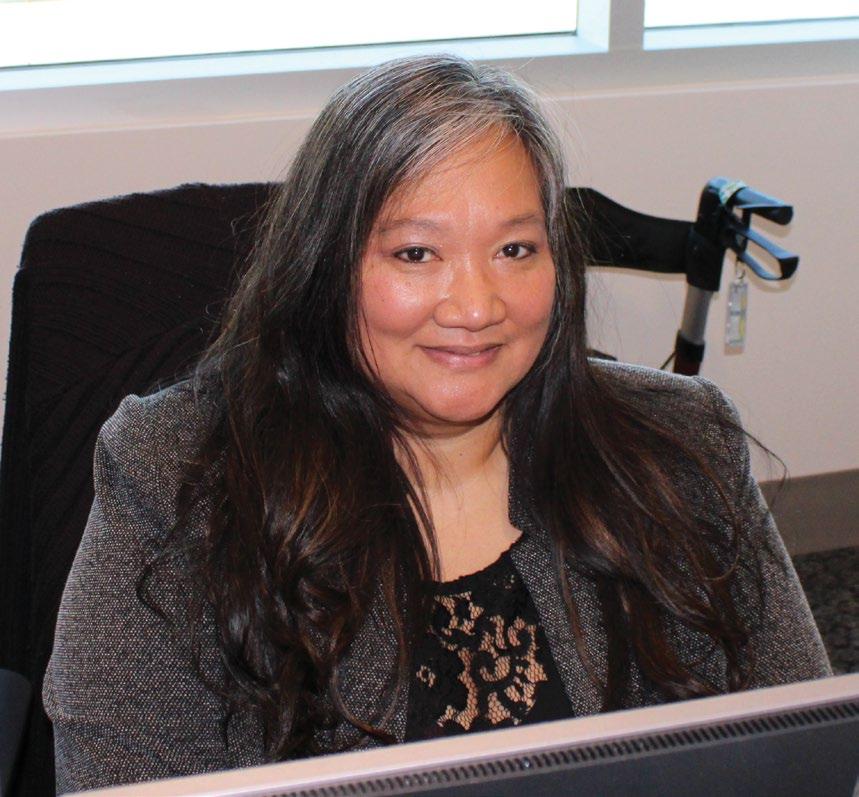
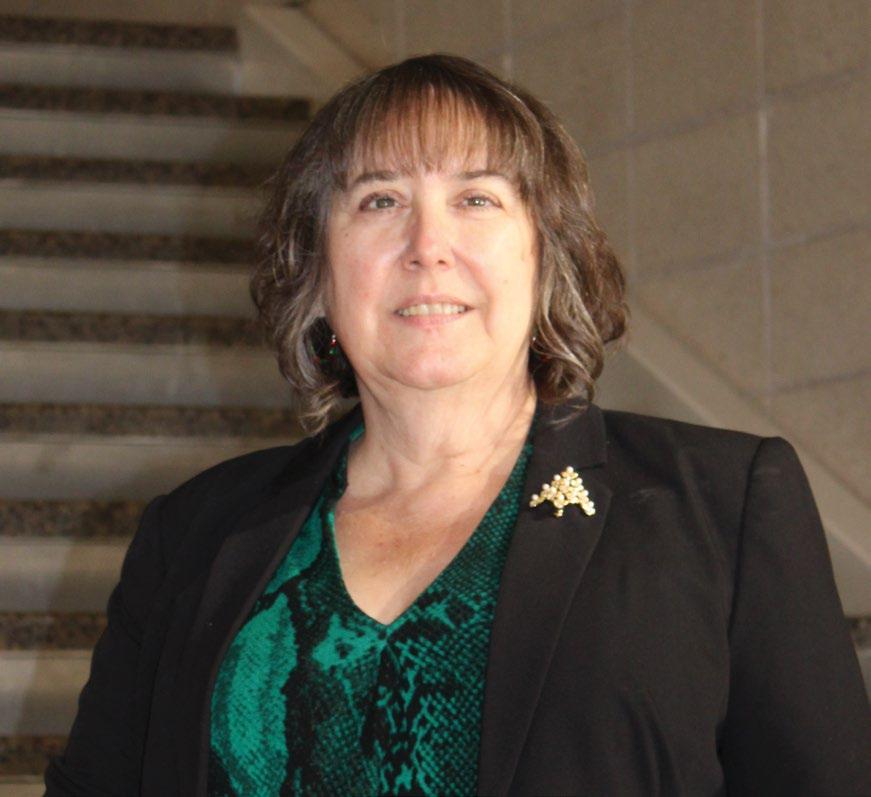
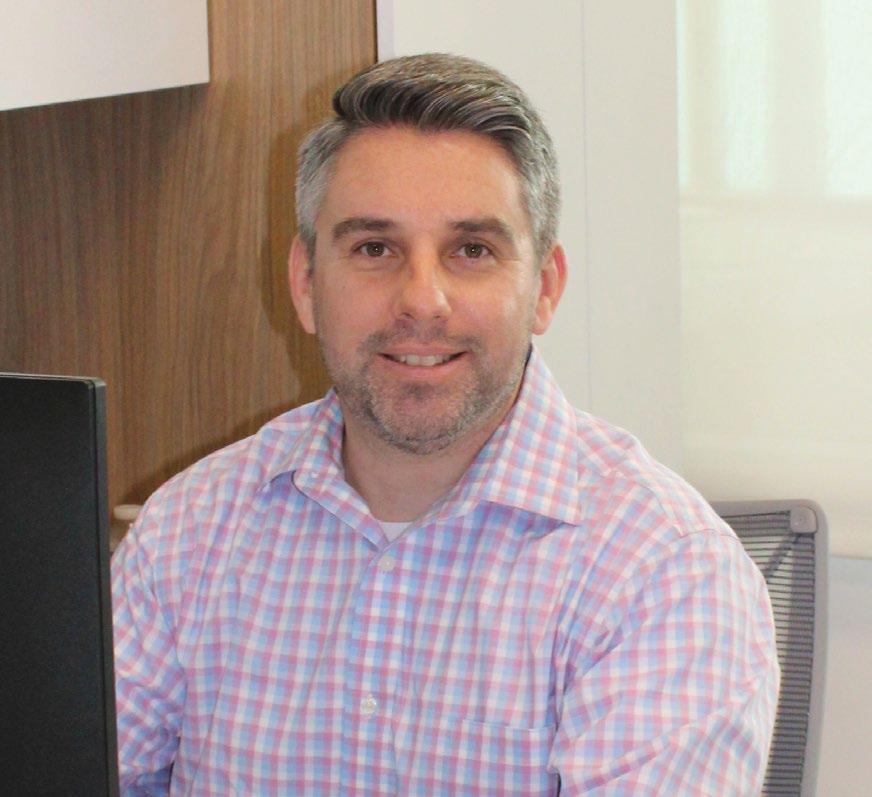















































































































































































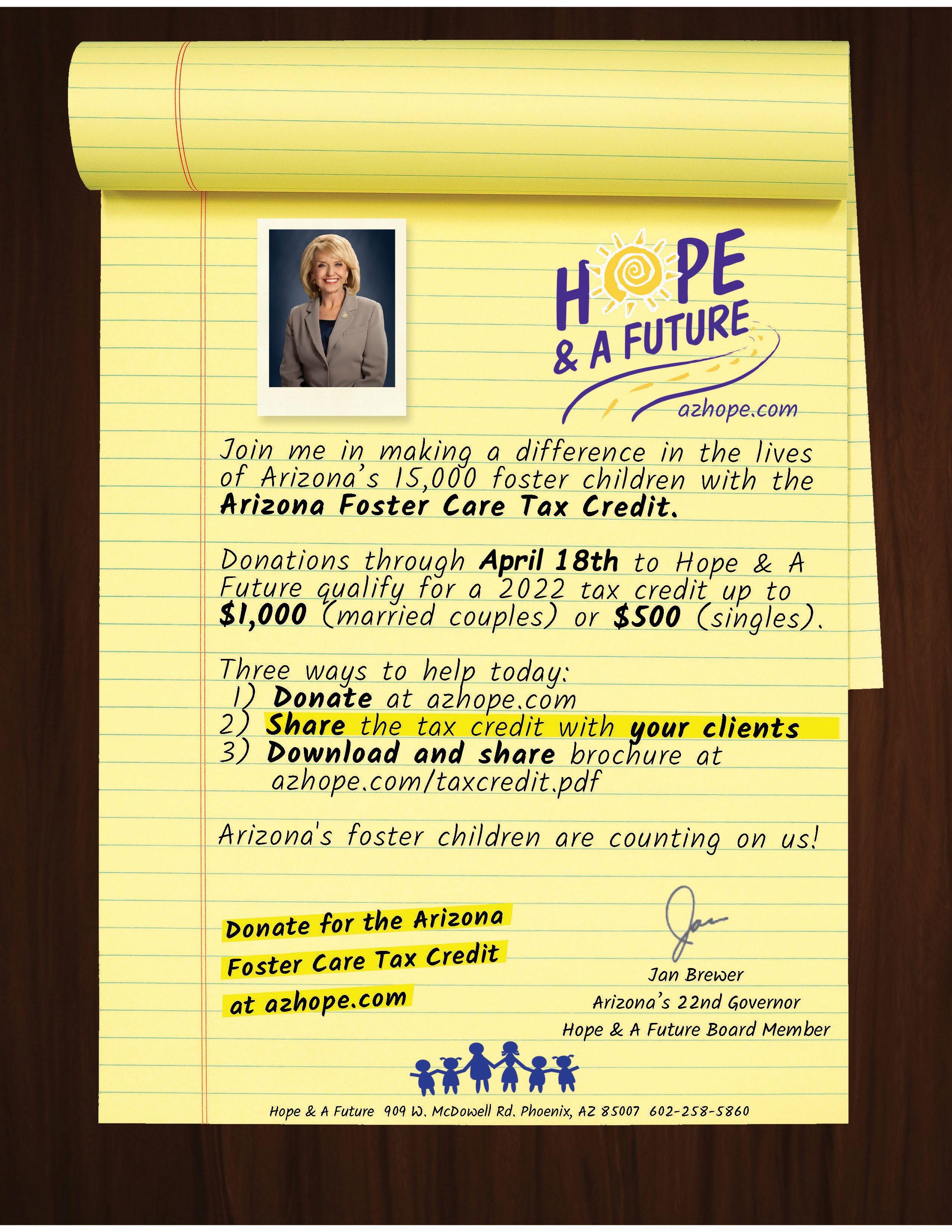

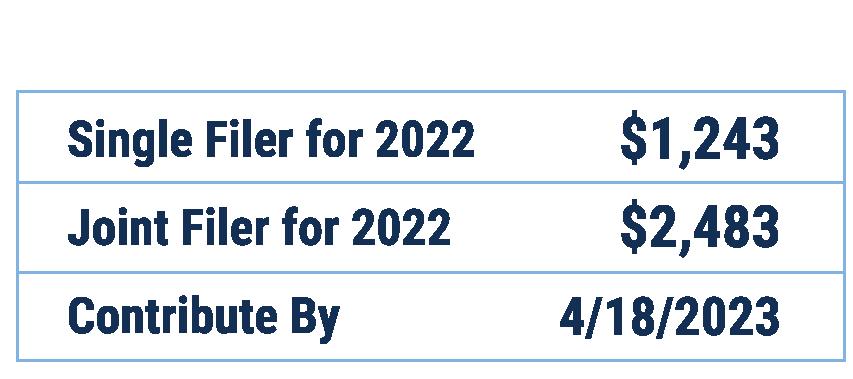







Immediate Past Chair Tom Duensing AICPA Council Members Mike Allen Jared Van Arsdale

AZ CPA is published by the Arizona Society of Certified Public Accountants (ASCPA) to provide information, news and trends to the accounting profession. It is distributed six times a year as a benefit to ASCPA members. The ASCPA, its members, board of directors and administrative staff assume no responsibility for advertisements herein. The ASCPA and the above people also assume no liability for business decisions made by readers in reference to statements and/or claims in articles or advertisements within this publication. Opinions expressed by contributors are not necessarily those of the ASCPA.
Arizona Society of CPAs 4801 E. Washington St., Suite 180 Phoenix, AZ 85034-2040


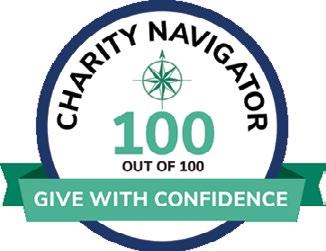









Telephone (602) 252-4144 AZ Toll-Free (888) 237-0700 www.ascpa.com


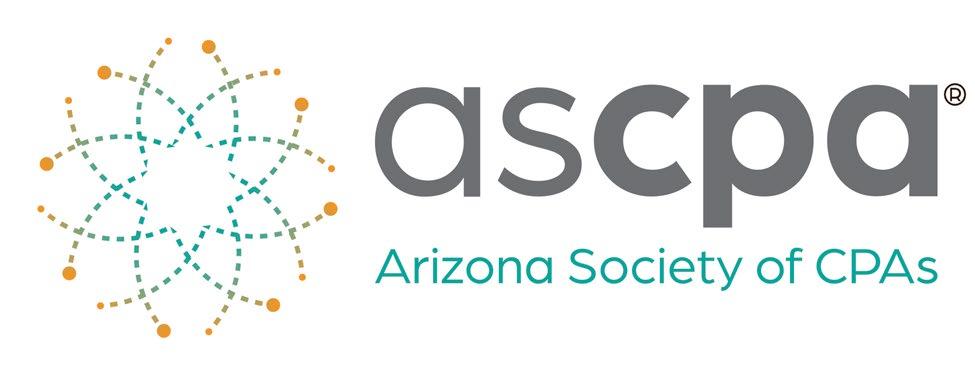
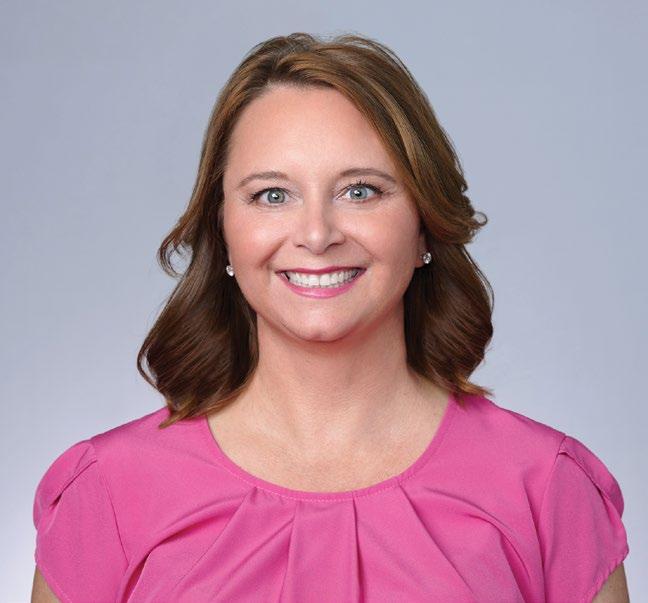
I would like to wish everyone a happy new year and hope that 2023 is off to a tremendous start for your business, family and all that matters to you and yours. As we rip the cover page off on a new calendar – am I the only one that still does that? – we can reflect on what the start of a new calendar year means to you.
Do you see it as a fresh start? Does the first day of a year provide you with a renewed sense of purpose, a new beginning or a reset of your journey? Do you set those dreaded resolutions?
I challenge you to take a few minutes to reflect back over the last year: the achievements, the setbacks and the memories you made. I also encourage you to give yourself some grace if you didn’t meet your expectations. We’re living in a world undergoing constant change and uncertainty. If it’s made an impact on your 2022, that’s expected and out of your control.
For me, the last year has been a conscious shift to be more intentional with what is in my control and to find more opportunities to avoid rushing through life. I could have missed moments that I could never repeat with my family and friends. My daughter was completing her K-12 school career in the spring and transitioned to college in the fall, another time in life filled with change and new experiences. I wanted to be there for her and for the one-time moments like college tours, scholarship applications, senior pictures and an incredible family summer vacation to Greece. She is at NAU as a Lumberjack scholar, studying criminal justice and forensics, and we are super proud!
In the world of self-development, I find it rewarding, albeit challenging, to push myself to be slightly more uncomfortable, and I often find goals motivating. About 41% of Americans set resolutions for a new year, but I had noticed the traditional method never worked well for me. And I’m not alone; According to a 2016 study by Discover Healthy Habits, only 9% of the people who set resolutions actually achieve them. A colleague suggested a replacement to resolutions – using one word as a guidepost throughout the year. The concept is based off the book, “One Word That Will Change Your Life,” by Jon Gordon, Dan Britton and Jimmy Page. This short book – only an hour-long if you prefer audio books like me – even includes a worksheet to help you pick your word. I chose “purposeful” as my word in 2022, and I found starting the new year with a vision like this refreshing. I wanted my actions, intentions and choices to have purpose at the forefront. As I write this article a bit sooner than January in time for publication, I haven’t quite picked my word for 2023. I have a few on my list, one of which might resonate with you: gratitude, kindness, quality and focus.
In this issue, you’ll meet three ASCPA members who support cities like the one you live in. We’re just a few months past election day, but there is so much more to working in government than campaigning and policy making. Many hardworking employees, including CPAs, keep your neighborhood going behind the scenes. For these ASCPA members, purpose is also at the forefront of their mind and their role in public service. l
Best, Rachael CrumpNorman R. Mendoza, CPA, was promoted to market leader at Eide Bailly.
Andrew Spillum, CPA, was promoted to COO at Eide Bailly.
James R. Anderson, CPA; Yesenia Barraza Simmons, CPA; Dana Cretu, CPA; Glenn C. Conover, CPA; Douglas A. Dunlap, CPA; Donald R. Bays, CPA; Duncan Walter Torrance, CPA; William Ray Marshall, CPA; Caron M. Mitchell, CPA; David Kimball Walser, CPA; and Kevin R. Yeanoplos, CPA, presented at the Converge annual conference.
Rachel S. Karlan, CPA, has been promoted to director in government services at Keegan Linscott & Associates.
Sean Tanner, CPA, is now director in consulting services at Keegan Linscott & Associates.
Melissa Seida, CPA, is now director in audit services at Keegan Linscott & Associates.
If you have changed your address or email, don’t forget to update your contact information on your ASCPA account. Don’t miss out on important member information and notices. To update your information, log into your ASCPA account at www.ascpa.com/my_account.
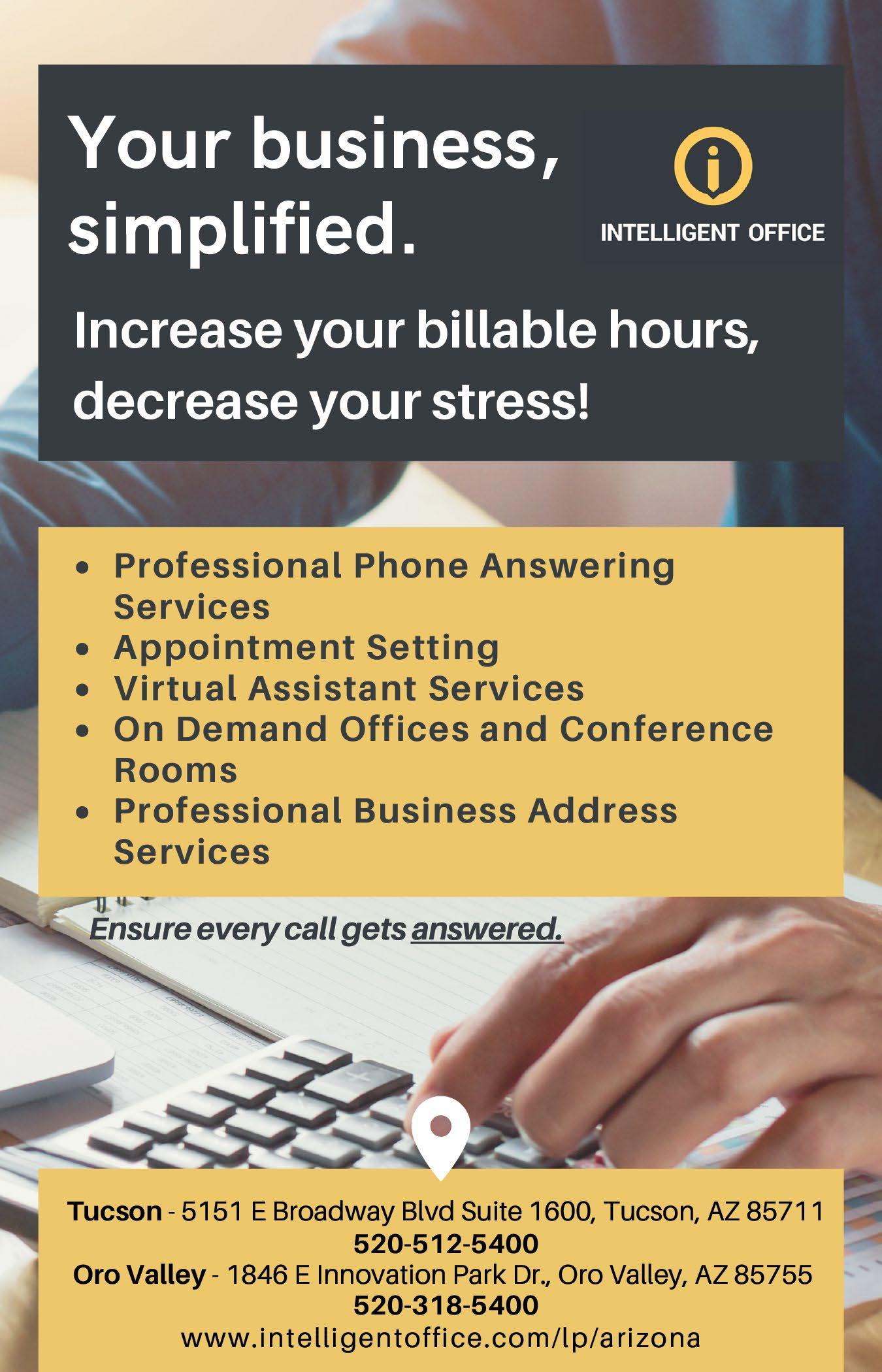
Stay informed of changes to federal and state tax information and access links to timely information on topics impacting your industry
Registration is quick and easy and gives you access to valuable online resources, like:
• U.S. Master Tax Guide®, the authoritative tax resource
• Monthly spotlight and news links on industry topics
• Sale s and use tax rate changes chart
• State taxability matrices
• Payroll state and local withholding rules and research tools
• State and federal employment law comparisons, law summaries, and wage tax information
• Inte ractive federal and state forms library
Registration is fast, easy, and free. Any accounting professional can sign up, so encourage the whole firm to register for this valuable resource today!
Paychex offers ready-to-post listings of federal and state payroll and retirement rate information for the states and territories you choose. Plus, you can customize a version of Tax Facts with your firm’s name and address to send directly to clients.
Paychex is proud to be the preferred provider of payroll, retirement, and HR solutions for the ASCPA.

If you’ve seen local business headlines, you’ve likely noticed big changes in the West Valley. With perks including strategic access to infrastructure like the I-17 and affordable land, WESTMARC data expects the West Valley’s population to grow at twice the national rate over the next five years.
This year, both Goodyear and Tolleson moved into new civic spaces to keep pace with the anticipated demands of their new citizens. In just a few years, the Goodyear Civic Square, which now stands tall amid surrounding construction, will be strategically in the center of a mixed-use development where people will live, work and play. It’s a testament not only to the changes in the area, but also to the expectations of growth, opportunity and community in the next few years. Likewise, many governmental entities are adjusting their strategies as employers to develop and retain top talent.
Meet three ASCPA members who are helping the West Valley grow.


When citizens think about their municipal government, they might think about the firefighters, police officers or utility workers that help keep their city clean, safe and moving. Each city’s finance department operates in the background, ensuring that those public-facing departments can operate smoothly.
“We make sure employees and vendors are paid, that there are no issues with the supply chain and that things in the background are done for departments working for residents on a day-to-day basis,” explains Joseph Wagner-Corona, CPA, the financial services manager for the city of Tolleson.

Wagner-Corona helps develop the annual budget and oversees areas such as accounts payable and receivable, risk management and utility billing for the city’s service of water, sewer and trash. He is also leading change management and implementation for the new Enterprise Resource Planning (ERP) system, set to launch Jan. 1, 2024. It’s a massive, but necessary, undertaking happening alongside the move to the new city hall. Tolleson has outgrown its old system and building amid population booms in the West Valley.
In December, Tolleson hosted a grand opening for its new Civic Center, a $22 million project that includes expanded government offices, a library and a senior center. If all goes as planned, the lot next door will be an aquatic center. It’s a place for public servants to work, the community to enjoy and for people to come together in the city’s first proper public meeting chamber.

Though the demand is growing for their services, Wagner-Corona finds his team struggling to recruit the right talent. And they’re not alone – According to data from Deloitte, 92.4% of hiring managers for accounting and financial positions at public companies said talent retention is a big challenge.
“When you have to carve out a whole day to interview, and then you come out of the process without viable candidates, it feels like a waste of a day,” he says. “Still, we know we can’t settle. It might have taken extra time, but ultimately that’s going to pay off in the long run.”
Wagner-Corona has a lot of experience in financial government work, having started his career in the auditor general’s office out of college.
“When I was 22 years old, I never thought that government was my passion, but I wanted to find a position that allowed me to enjoy what I do in accounting and finance, and I wanted to be able to have a life,” Wagner-Corona says.
He remembers speaking to many organizations at a career fair and how he could pinpoint which employees were dealing with burnout just from his conversations.
“I found the auditor general makes a positive impact in government,” Wagner-Corona recalls. “I think that built a passion for me to make a positive impact serving the public, whether through the auditing function or making sure public money is spent in an appropriate manner, which I do more directly in the function I’m in now.”
The previous Tolleson Civic Center was built in 1967. The new 47000-square-foot space hosted its grand opening in December 2022. Joseph Wagner-Corona, CPALike with any job, there are tradeoffs that he weighed. Not every week is capped at 40 hours — especially during a busy auditing season — but he’s never looked back on his decision. Now a father to triplet daughters, he enjoys coaching their soccer team during the week at practices and on the weekend for big games.
“I’m trying to be as present in their lives while they still want me to be,” he says. “I’m sure there will come a time in the not-too-distant future where being around dad is not the coolest thing. I’m going to maximize that as much as I can.”
Beginning in 2020, Tolleson transitioned to a four-day work week, encouraging employees in certain departments, including finance, to switch to four 10-hour days.
“I would never want to go back,” says Wagner-Corona. “Having that one day off — for us, it’s Fridays — is really nice. It allows you to take on those things you may have missed out on during any working week.”
Wagner-Corona usually starts his workday at 7:30 a.m., with two days per week in the office and two remote from his home in Peoria. On the days when the ERP implementation schedules him in Zoom meetings for seven hours at a time, those extra hours from the four-day work week help to keep his other duties proceeding. Though he gets home later in the evening than he used to with a traditional five-day week, working remote has still enabled him to be more present with his family. Even if the hours are the same, there are still small moments, like waving the girls off to school, that allow him to be present.
Celina Morris
Building and Investing in the Right Team in Goodyear, AZ
Goodyear’s finance department is bustling on Wednesdays, one of two days each week when all staff work on-site, including finance manager Celina Morris. Her Wednesdays begin with a cup of coffee on the road as she drives up from Casa Grande. When she arrives at the office, if she’s not already mingling between cubicles and touching base with her team, she’s likely updating her to-do list in One Note.

Together, the team’s mission is to ensure effective and efficient use of resources and be transparent in the process as the city upholds goals set by its council and citizens.
Her responsibilities touch several areas of government services, from treasury and risk management to compliance and metrics. This also includes supporting an enterprise and holistic approach to development, a key function for a city that U.S. Census data concluded was one of the nation’s fastest growing cities in 2021. This guarantees new neighborhoods and buildings will have the same access to services, such as trash collection and water, as long-time residents.
“It’s important to know how the pieces are put together and be able to explain how a citizen’s money is working for them,” Morris explains. Anyone can call about a development agreement or any number of topics brought up at a city council meeting. After all, their work is funded through avenues such as sales tax and government funds.
The key decision-makers are people wanting to make the best choices for the communities in their care. In the past, she worked for the city of Casa Grande, where Morris lives with her family. She’s met leaders like her own county supervisor and police chief.
“I really love the community and being involved in local government,” she says. “You really get to know people.”
Continued on next page...
The team of six has a great amount of collaboration, communication and trust to ensure the best decisions are made. Each department head is treated as the subject matter expert in their specific area, regardless if their professional backgrounds have differed in the past. Morris believes their distinct breakdown in expertise allows them to make quicker decisions and reach the implementation stage sooner.
“Accountants like to be in control, so it’s interesting to share that control and come to an agreement to move forward,” she says. “There’s a lot of trust. We know that when we’re making decisions, it’s for the good of the organization, rather than an individual agenda.”
Morris is in the final stretch of earning her CPA, which is required for her position. When she first graduated with her bachelor’s degree as a nontraditional student, she went on to take three of the four parts of the exam. As her personal and professional life got busier, the goal was moved to the backburner, but she continued her education to earn credentials over her career including Certified Government Financial Manager (CGFM) and Certified Risk Manager (CRM). The CPA has always been on the list.
“Obtaining the CPA is a goal that I’ve had for a long time, and I believe it to be the universal sign of my ongoing commitment to the profession,” she says. “Education and the ethical standards are important, and I think that’s communicated and known amongst a larger population.”
On top of developing professional expertise, recruiting and retention remain a huge priority for the city of Goodyear, which recently launched its Intentional Culture Design program. Human resources rolled out new core values to encourage team cohesion and remain competitive with potential employees. The program also develops leadership beyond the traditional responsibilities of meeting outcomes and deliverables.

“The role of a finance person is no longer focused only on transactions. We’re really about value-added analytics and compliance,” Morris explains. “We are encouraged to become a leader of people, to ensure that we build up people who believe in the culture.”
Culture became a greater focus as many employees were offered hybrid work schedules, dispersing the team across central Arizona. Two in-office days where the entire team is on site were introduced as part of the solution, but workplace culture is at a more complicated crossroads. Other factors such as new technology, discussions on work life balance and an increasingly diverse and multi-generational workforce are all at the forefront.
Before the grand opening of Goodyear Civic Square in summer 2022, all Goodyear employees were scattered between several buildings.Keeping Citizens on Their Feet in Peoria, AZ
According to usgrants.org, the federal government and Arizona’s Department of Finance have allocated $14.479 billion in federal grants and $12.997 billion in other types of federal financial aid for Arizona’s residents. This money is distributed to different economic sectors, with the majority in business, education, housing, veteran and social service grants.
Experts like Renee Ayres-Benavidez, CPA, help oversee the grant distribution and compliance process, ensuring that cities like Peoria can continue to receive these funds year after year. Ayres-Benavidez monitors grants provided by the U. S. Department of Housing and Urban Development (HUD), including the Community Development Block Grant (CDBG) and the HOME Investment Partnerships Program; as well as the COVID-response funding under the CARES Act and American Rescue Plan Act (ARPA). These grants have a wide array of uses, from helping cities recover from the economic impacts of a lockdown to housing and additional homelessness resources.
“As long as I help maintain compliance, our city keeps receiving money, and as long as we keep receiving money, we can help people,” says Ayres-Benavidez. “I help make sure the funding gets to the nonprofits that can get it to the community and do the most good.”
Without strong compliance systems for grants like the ones Ayres-Benavidez oversees, substantial funding could be cut from nonprofit agencies that rely on it to help low-income and vulnerable residents. The rules and priorities have changed over the years, but often communities can locally control the use of these funds to serve the greatest needs.
“That makes a difference in the community for the people who need a hand up to get themselves restabilized and moving again,” Ayres-Benavidez explains. “For example, many seniors are having trouble with affordable housing, and homelessness is an issue. Without these funds, we would have difficulty addressing some of those needs.”
Some of Peoria’s funding is used for social services, such as senior day center services, case management for the homeless and education on fair housing rights via nonprofit programs. There are more projects that Ayres-Benavidez has touched within the last year: renovations at a Boys and Girls Club, home repairs with Habitat for Humanity and the list goes on.
In any given year, Ayres-Benavidez has as many as 30-40 grant contracts active between the federal and local grant funding, each with its own touchpoints throughout the year. Most partnerships need her support during the annual funding cycle through writing contracts, reviewing billings and referring clients to ensure compliance.

“The type of grants we have do a lot in the community, and they are sub-granted to nonprofits,” says Ayres-Benavidez. “The city of Peoria is very citizen-centric, so we get calls all the time from people who need assistance. On any given day, we might take a call from someone who needs help with rent or maybe a food box, so we work with nonprofits that can provide these services.”
Ayres-Benavidez has always worked in regulation and compliance. She started her career with the Arizona Auditor General’s Office working on regulatory compliance, accounting and procedure manuals, and in partnership with many local governments. She went on to work with HUD grant programs at the city of Glendale and Maricopa County, and also worked at a nonprofit, utilizing her knowledge of developing and implementing compliance procedures.
“I have been lucky enough to see it now from all sides: the regulatory side, the pass through side and to see it from the ultimate recipient side,” says Ayres-Benavidez. “It helps me think about how we work to build better systems so nonprofits can be compliant and still get the work done.”
Continued on next page...
Still, Ayres-Benavidez knows that there is more need than the available funding can provide. Ultimately, the decision to decide funding priorities is up to policymakers and city and state leaders.
“I help the city by providing information to the city council and management so they can make those important decisions,” Ayres-Benavidez says. “It’s about keeping your eye on the community need and making sure the money gets where it’s most needed.”
Her experience working with HUD grants has also provided the opportunity to work on the great need for people facing homelessness. Just a few weeks prior, her staff organized a Homeless Outreach Provider Event that brought a number of nonprofit providers and partners together to offer services to unhoused citizens to help them find shelter, begin case management or get their driver’s license.
“Every single person has a different reason why they’re on the street and a different story. You can’t lump them together,” Ayres-Benavidez says. “I’ve seen all the hard work that goes in behind the scenes to help them. It’s not about picking them up and taking them to a shelter, but I wouldn’t have known that if I hadn’t had a chance to work so closely with the nonprofits who work on this issue every day.”
She is proud that her work in finance enables projects that, in the long term, can bring solutions to residents of her city.
“When I say I do grants compliance, I am, but there’s more to it than that. This is also about the people we help too,” she says. l

Together we can change how the CPA profession is viewed. Share how being a CPA has created opportunities for you to thrive professionally and personally.
• Tell your CPA story on social media and use #ProudAZCPA
• Participate in Member Monday on social media
• Volunteer for student outreach programs
Learn more at www.ascpa.com/proudazcpa
Renee Ayres-Benavidez works in a department that utilizes a four-day work week. December through March is a busy season for grants allotment.CPACharge has made it easy and inexpensive to accept payments via credit card. I’m getting paid faster, and clients are able to pay their bills with no hassles.
– Cantor Forensic Accounting, PLLC
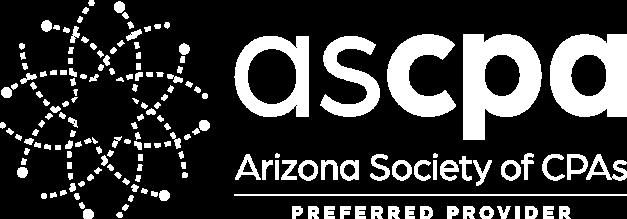


Trusted by accounting industry professionals nationwide, CPACharge is a simple, web-based solution that allows you to securely accept client credit and eCheck payments from anywhere.




The issue that is top of mind for many auditors and government finance officials is which standards are required to become effective for the first time with 2023 fiscal year-end reports.

Over the past two years, Arizona governments have implemented groundbreaking standards on fiduciary fund reporting and leases. In 2023, the new lease accounting and financial reporting pronouncement is joined by two siblings with the impending implementation of Statement No. 94, Public-Private and Public-Public Partnerships and Availability Payment Arrangements (referred to as P3), and Statement No. 96, Subscription Based Information Technology Arrangements (referred to as SBITA).
While the underlying principles of these two statements are similar to leases, there are several unique features of those pronouncements. One of the most important considerations that needs to be made is determining when each of the Statements should be employed.
Continued on next page...
If you are wondering what the Governmental Accounting Standards Board (GASB) considers to be a P3, as these transactions are commonly referred to, it should be noted that transactions addressed in Statement 94 will not be found in many Arizona governments. When a government entity enters into this type of transaction, it normally is material and therefore worthy of further discussion. A key factor in determining when Statement 94 applies is based on whether a capital asset is involved in the transaction. In other words, the Statement does not apply to contracts where only services are provided by the private sector (or another public sector entity) to the government or its stakeholders.
Statement 96 was primarily issued to address major Enterprise Resource Planning (ERP) systems that now reside in the cloud, but the new standards also encompass contracts related to other subscription-based information technology arrangements that are not ERPs, which the government controls. The Statement provides guidance associated with subscription liabilities and assets, which is similar in most respects to the lease standards. This is just the tip of the iceberg into accounting for and reporting outlays other than subscription payments that are associated with the implementation of a SBITA.
In 2022, the GASB crossed the century mark in Statements with the issuance of Statement No. 100, Accounting Changes and Error Corrections, and Statement No. 101, Compensated Absences. When a new Statement is issued, one of the first questions asked is – When are the standards effective? The quick answer in most Arizona governments is June 30, 2024, year ends for Statement 100 and June 30, 2025, year ends for Statement 101. While those dates may appear to be far away, it is important to remember that the vast majority of GASB standards are retroactively applied (including all of the Statements referenced in this article). As the message on the passenger side mirror of a car states, “objects in mirror are closer than they appear.” The same can be said about accounting and financial reporting standards.
One of the highlights of Statement 100 is the standardization of transition guidance. Governmental entities will apply the accounting changes and error correction guidance in Statement 100 to all Statements that are issued in the future unless specific transition guidance is provided in a particular Statement. Other key features of Statement 100 include identifying the proper classification of these events – accounting changes, accounting estimates and error corrections; note disclosure requirements; and the impact of these events on required supplementary information.
Statement 101 is the result of a reexamination of compensated absences standards that were issued 30 years ago. For some governments, the environment associated with compensated absences such as benefits like vacation and sick leave have changed. For example, rather than offering separate vacation and sick leave benefits, those benefits are combined into a paid-time-off (PTO) benefit. This type of change was one of the drivers in the GASB rethinking how sick leave benefits, including those that are now a part of PTO and do not expire at year-end should be accounted for and reported. The Statement will not be effective until fiscal years beginning July 1, 2024, for most Arizona governmental entities, but the accrual of compensated absences and the phrase “to be used for time off or otherwise paid in cash or settled through noncash means” does warrant consideration from a policy standpoint before the effective date.
The GASB also has been working on three comprehensive projects over the past several years. Those efforts include a reexamination of the financial reporting model (FRM) project, a revenue and expense recognition (RER) project and a note disclosure project. In 2022, the GASB issued Concepts Statement No. 7, Communication Methods in General Purpose External Financial Reports That Contain Basic Financial Statements: Notes to Financial Statements which establishes a framework that will be used by the GASB to reexamine current disclosure requirements and all future disclosure proposals.
During the year, the Board has been redeliberating the proposals set forth in the Preliminary Views, Revenue and Expense Recognition, and the Exposure Draft, Financial Reporting Model Improvements. While the FRM project currently is out in front from a due process standpoint, the Board may soon be considering how closely linked the projects should be, not only from a theoretical basis, but also from a timing of release perspective.
There are many major proposals that now being considered at the GASB related to the FRM project, including the measurement focus and basis of accounting for governmental funds and modifications to the management’s discussion and analysis; presentation of governmental and proprietary fund statements; budgetary comparison reporting; and unusual or infrequent items. Given the possibility that fundamental changes will be made to what is reported in governmental fund financial statements, I encourage anyone involved in governmental accounting to stay up to date on the latest developments. l
David Bean is a retired director of research and technical activities for the Governmental Accounting Standards Board. He will be speaking at the ASCPA’s Governmental Accounting Conference on Feb. 3, 2023, on GASB updates and the financial reporting model. Register: www.ascpa.com/gac23.

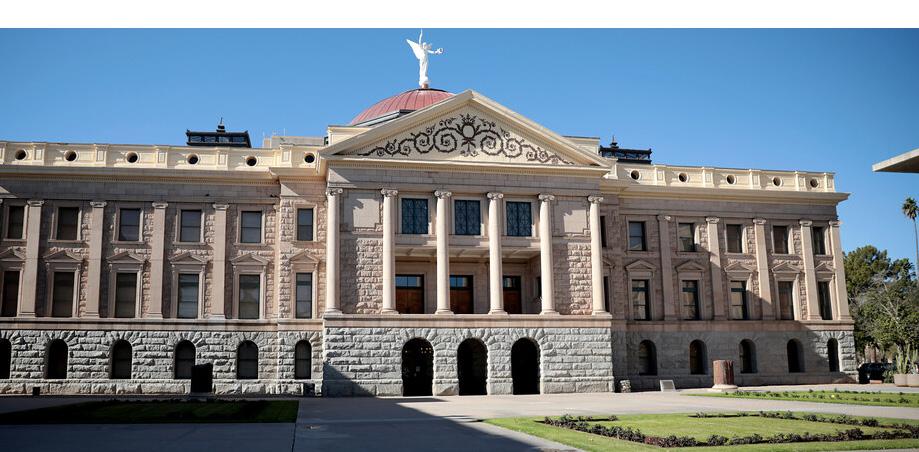
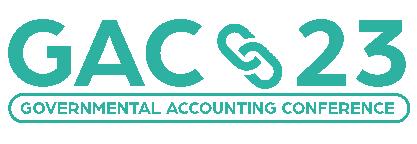
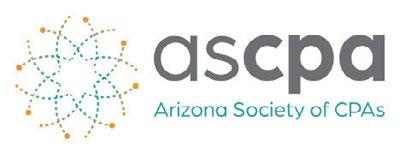
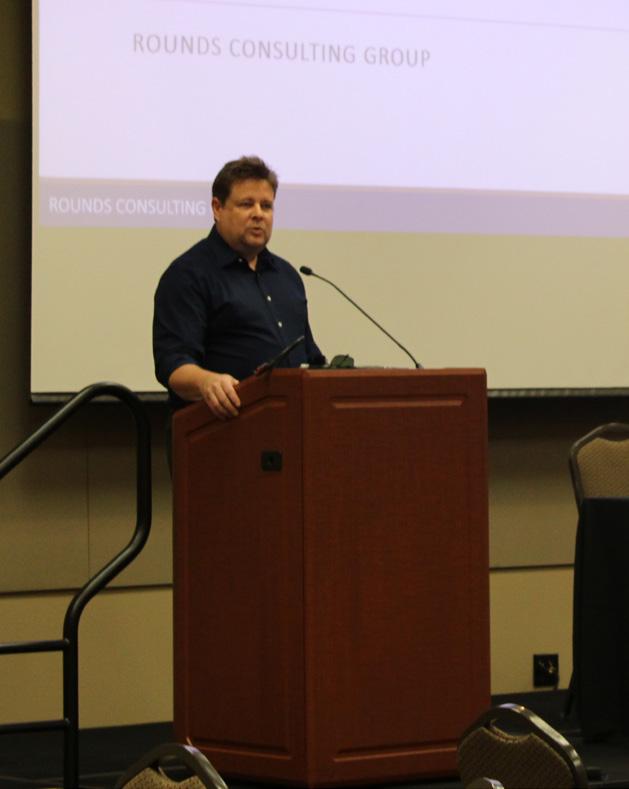

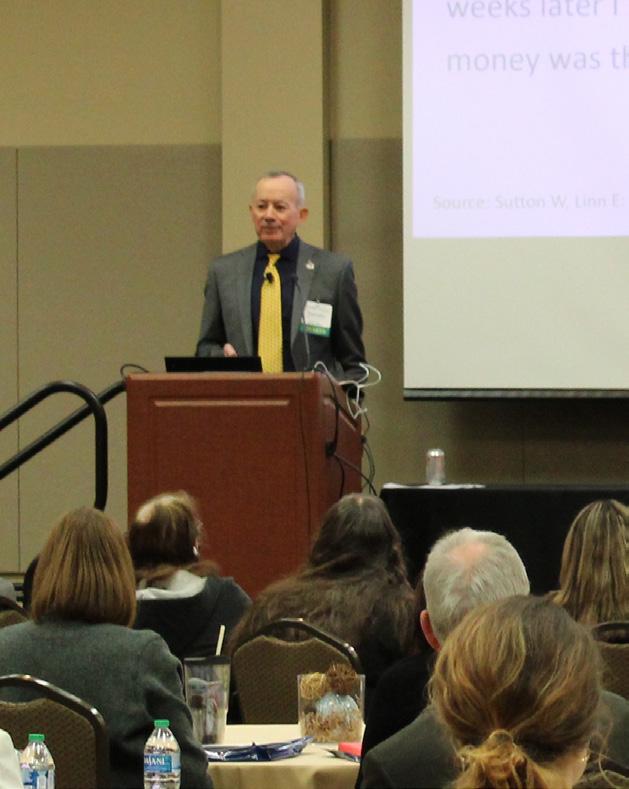





 By John W. Weiss, Esq. and Dillon J. McGuire, Esq.
By John W. Weiss, Esq. and Dillon J. McGuire, Esq.
Economists warn that a fiscal storm is brewing, with prolonged recession the likely result. Bankruptcy filings seem imminent, and there will be a growing need for CPAs to assist their clients in financial distress. CPAs should be aware of the following key issues and opportunities when their clients face Chapter 11.
During a Chapter 11 proceeding, CPAs can seek to be retained and paid for services rendered to their client during bankruptcy. Allowed professional fees must be provided for in a debtor’s confirmed plan of reorganization (11 U.S.C. § 1129(a)(9)). Despite this requirement, the risk of non-payment must be considered before servicing a bankrupt client.
Continued on next page...
For CPAs who work with clients prior to bankruptcy, the automatic stay (11 U.S.C. § 362) must be considered. The filing of a bankruptcy petition automatically stays creditors’ actions to collect debts. Accordingly, it is critical that CPAs’ invoices be paid prior to bankruptcy, otherwise, any amounts owed as of the bankruptcy filing could be paid pennies on the dollar or discharged.
A company in bankruptcy (or party acting on its behalf) may seek to “claw back” payments made prior to bankruptcy. These are called avoidance actions and include fraudulent transfers and preferences.
Fraudulent transfer actions seek recovery of money or property transferred by debtors in the two years prior to bankruptcy. Debtors may also invoke state laws, which include longer look-back periods. Plaintiffs must establish that the debtor: (a) made a transfer with actual intent to hinder, delay or defraud any entity; or (b) received less than reasonably equivalent value in exchange for such transfer or transaction, and at the time of the transfer (i) was insolvent, (ii) was rendered insolvent as a result, (iii) incurred or intended to incur debts it would be unable to repay or (iv) made the transfer to benefit an insider (11 U.S.C. § 548).
Preference actions seek to “claw back” payments made on preexisting debt by an insolvent debtor within the 90 days prior to bankruptcy (one year if an insider). Targets of these actions may assert defenses by arguing that such payments (i) were not for an “existing debt,” (ii) were made in a “contemporaneous exchange” for the existing debt, (iii) were made in the “ordinary course of business” or (iv) that liability should be reduced by “new value” provided to the debtor following such payments (11 U.S.C. § 547).
CPAs can minimize risk of nonpayment by:
• Utilizing and strictly adhering to engagement agreements that either require payment in advance (the best defense to avoidance) or ensure a steady payment schedule to support an “ordinary course of business” defense. Avoid “dunning” clients for payment, as dunning can undermine this defense.
• Carefully maintaining billing records and ensuring billing terms are stringently followed. To minimize exposure, cease work and require current payment if clients fall in arrears. When a client is in arrears, insist on current payment for new services performed, to argue that such payment represents new payment for new work.

• Filing an affidavit of “disinterestedness” (to be retained and paid for services following bankruptcy) to prove they do not have any disqualifying conflicts and allow for their retention to be approved by court order. CPAs owed money at the time of a bankruptcy, or who were paid within 90 days prior to commencement of bankruptcy, may face challenges to their retention.
CPAs add tremendous value in bankruptcy, as debtors and their attorneys need accounting advice. But CPAs should be careful, as the rules are complex and present traps for the unwary. CPAs would be wise to consult their own bankruptcy counsel when faced with a client in distress. As the potential for an economic downturn increases, proceeding with counsel’s advice should greatly reduce the risk of costly lawsuits and related liability, while allowing CPAs to capitalize on continued retention during bankruptcy. l
From the Fall issue of New Jersey CPA magazine (njcpa.org/newjerseycpa)
John W. Weiss, Esq., is a partner and chair of the Bankruptcy, Restructuring & Creditors’ Rights practice at Pashman Stein Walder Hayden. He can be reached at jweiss@pashmanstein.com. Dillon J. McGuire, Esq., is an associate with Pashman Stein Walder Hayden. He can be reached at dmcguire@pashmanstein.com.
The information contained herein is for informational purposes only and not for the purpose of providing legal advice. You should contact your attorney to obtain advice with respect to any particular issue or problem.


























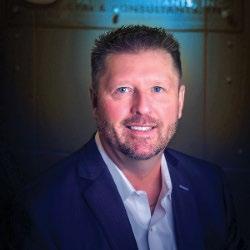
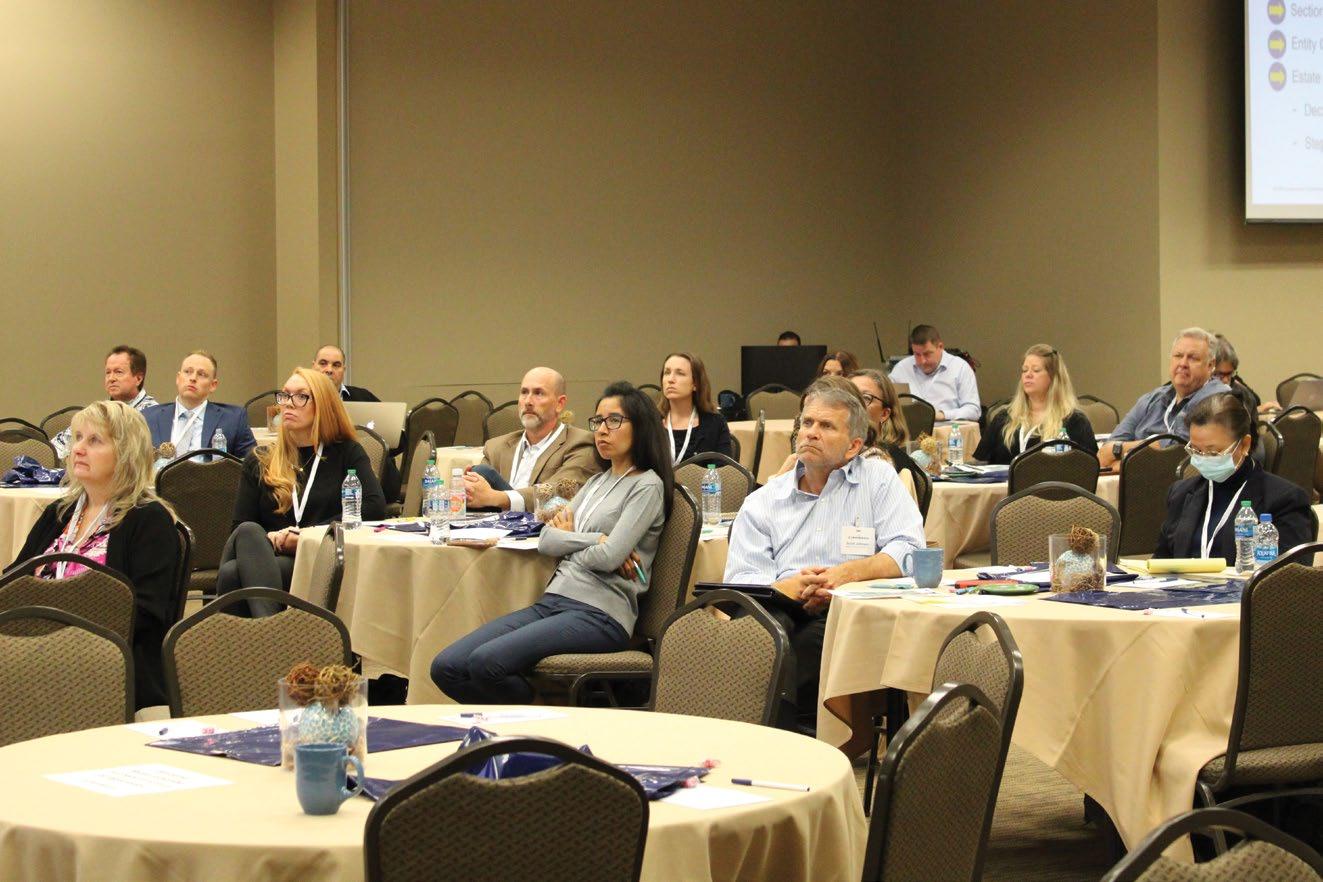
This event featured some attendee-favorite local and national speakers, as well as our first conference workshop on conflict resolution.
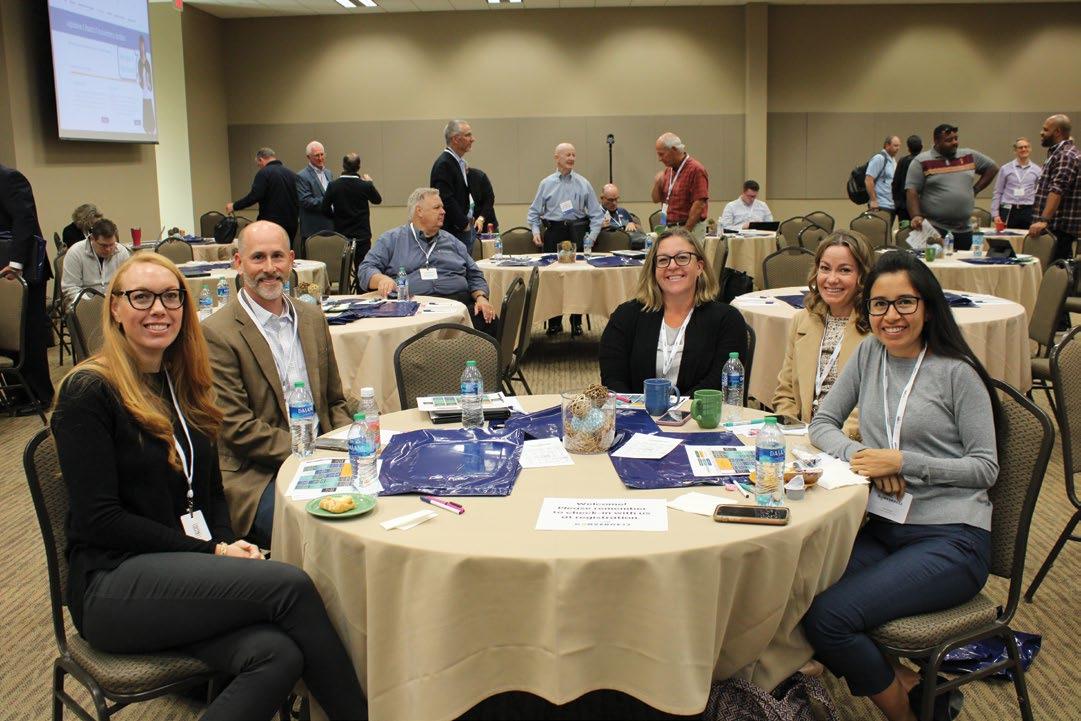
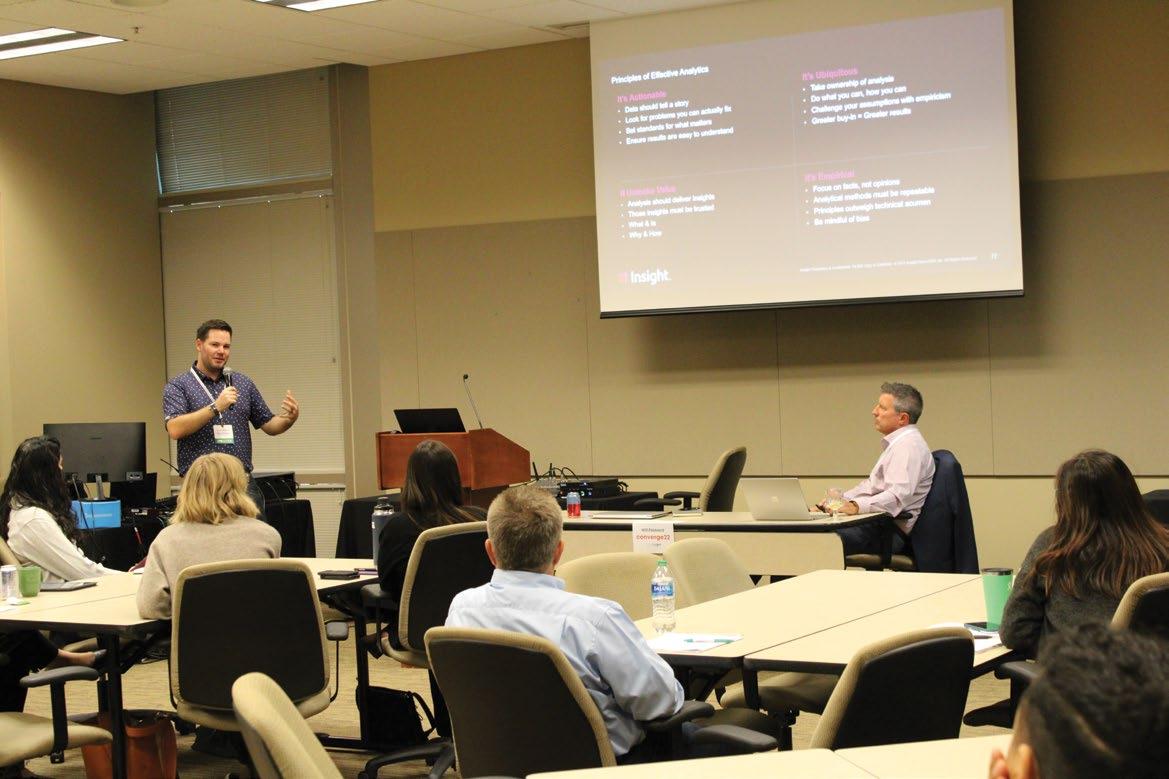
Mark
As an ASCPA member, you can access the Connect site and the tax community. This active community will deliver answers to important questions that impact your clients and your business when you need them most. If you haven’t used Connect yet, now is the time to start; it will change your tax season!
Scan the QR Code and log in using your ASCPA website credentials to get started.




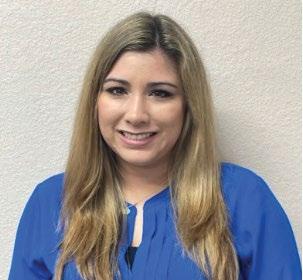

With the new fiscal year approaching, here are the nominations for next year’s Board of Directors and the Board of the Arizona CPA Foundation for Education & Innovation. Learn more at www.ascpa.com/board23.

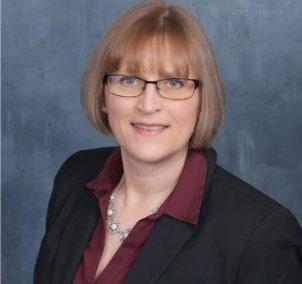
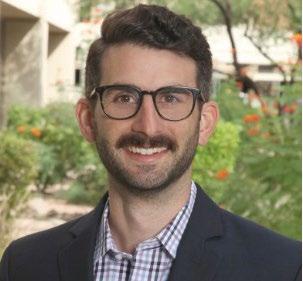
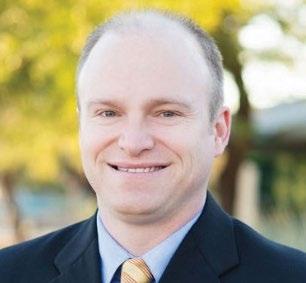
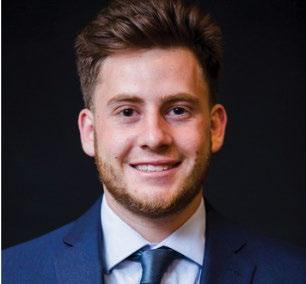
Congratulations to the Arizona CPAs who were licensed in 2022 and became ASCPA members. We are excited to continue being your connection to the CPA profession and focusing on ways to maximize your professional growth. To view a list of names, please visit www.ascpa.com/newcpas.
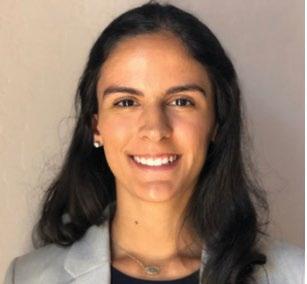


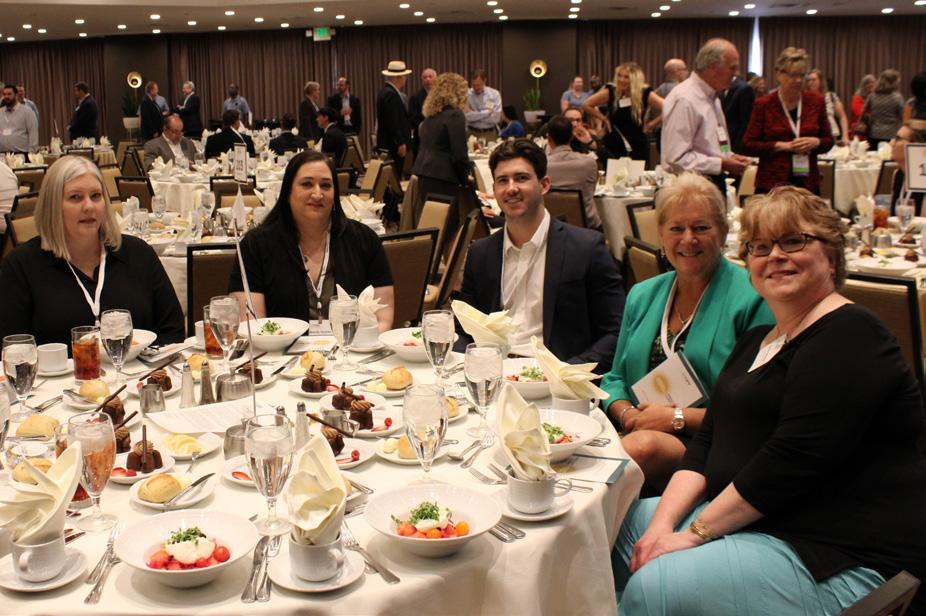
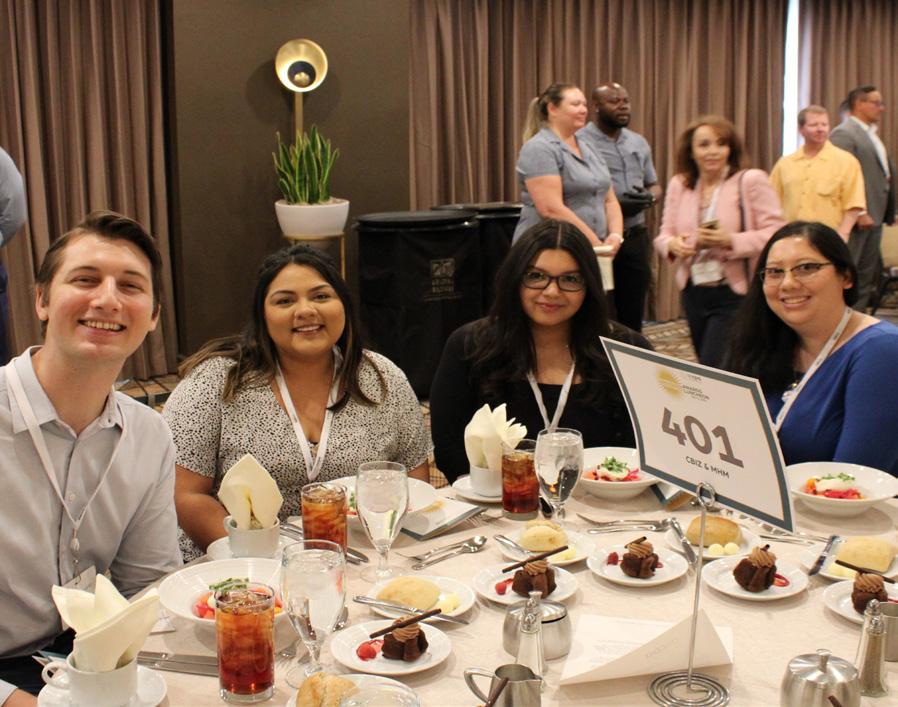
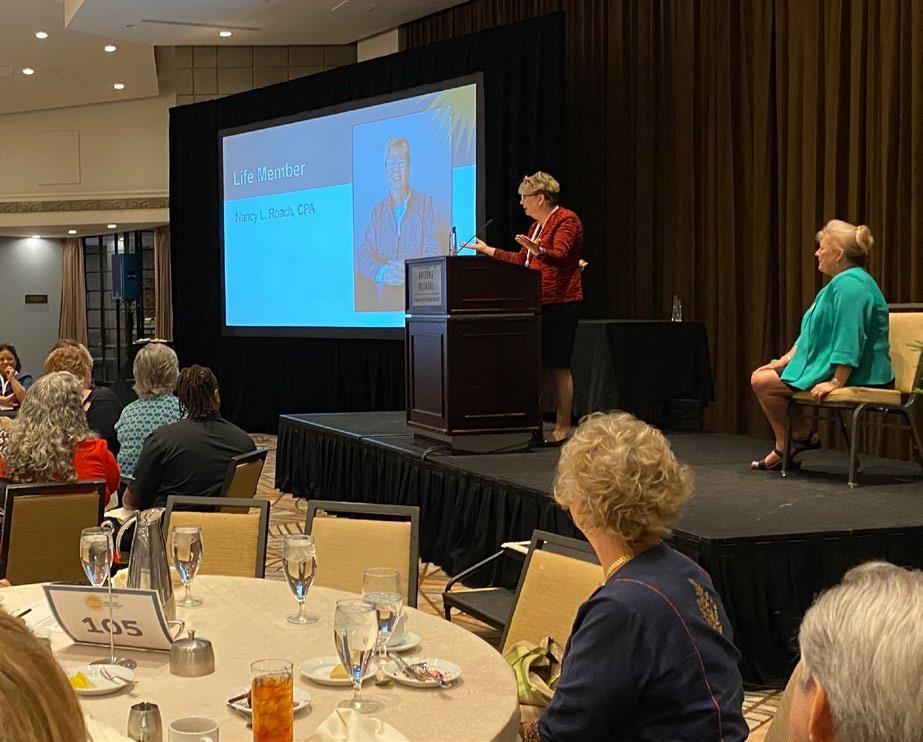
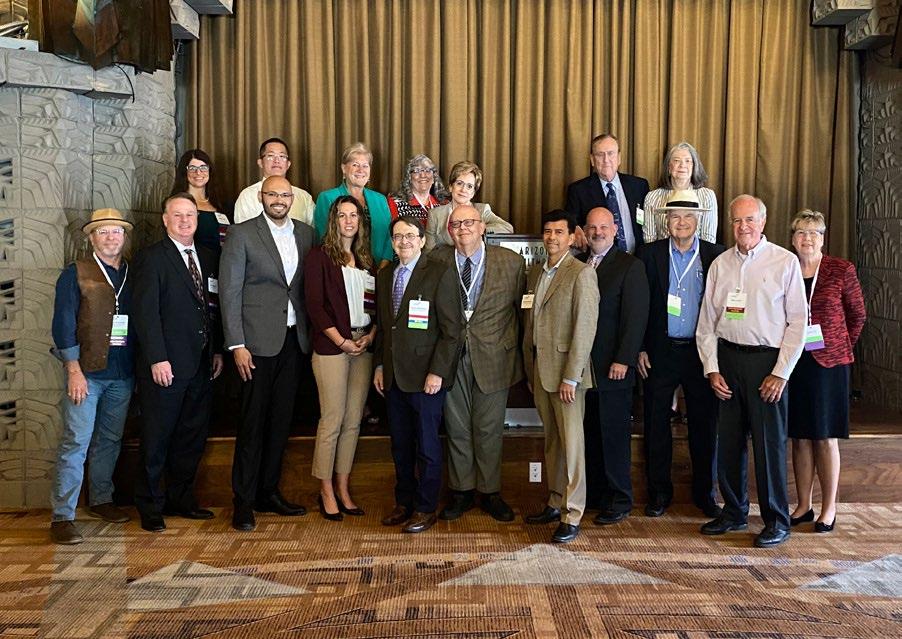

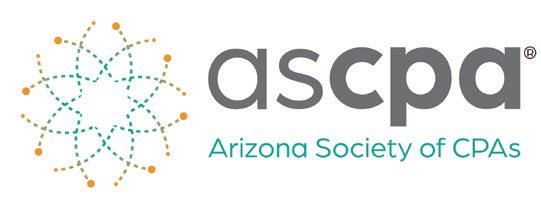

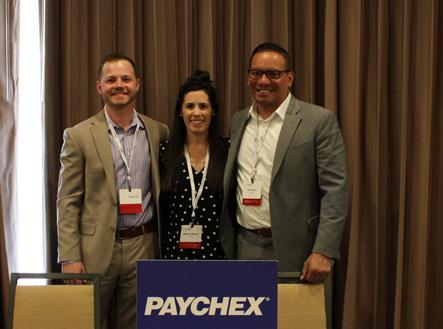


Online
Go


Flowers Rieger & Associates, PLLC | http://www.flowersrieger.com | Tucson CPA firm seeking a tax manager then partner by April 30, 2023, for a 10-person tax practice. Candidate will take over the business of approximately $750K. Strong communication, strong analytical and problem-solving skills and detail and deadline-oriented are desired. Firm was founded in 1984. We offer competitive salaries up to $200K plus and bonuses for new client development as well as tax season bonuses, group health insurance, 401(k) with a 5% company contribution, paid holidays, vacation and complete reimbursement of all CPA-related expenses. Please reply with your resume and salary requirements to mcf@theriver.com.
Take Charge America | http://www.takechargeamerica.org | 15-20 hr./week CFO to oversee nonprofit accounting team. Develop annual budgets and coordinate month end close + reporting. Manage annual financial statement audit and oversee Form 990 preparation and other regulatory filings. Sage G/L experience ideal. Resumes to: humanresources@ takechargeamerica.org.

Very attractive office space in Scottsdale (Bell Rd. and Thompson Peak). We have more space than we need and would like to bring in a sub-tenant. We own the space and rarely use it. Furnished. Features include an internal bathroom and a small kitchen/coffee service area. Currently configured as two offices, conference room, two workstations and reception area. The office park has tons of parking, and we have two covered/reserved spaces. Total space approx. 1200 sq. ft. Ground floor access (no stairs). Very attractive lease for the right growth-oriented practitioner (one to four person practice). For information, call (206) 853-8355 or email Graham@Optimistretirement.com.

4801 E. Washington St., Suite 180 Phoenix, AZ 85034-2040
PRSRT STD
U.S. Postage PAID
Phoenix, Arizona Permit No. 952
ADDRESS SERVICE REQUESTED
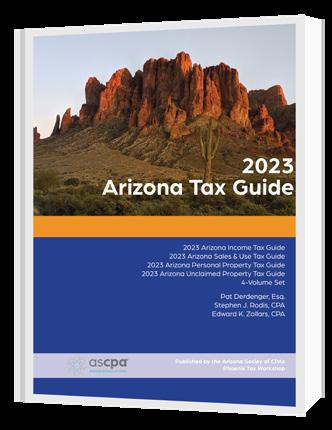
After more than 30 years of production, the Arizona Tax Guide continues to be the only comprehensive guide on Arizona taxes, built for the tax professional. It includes the following guides:
• The Arizona Income Tax Guide is a comprehensive and easy reference guide that highlights the differences between Arizona and Federal income tax law and provides references to the Arizona Revised Statutes for a more in-depth analysis. It contains individual, corporate, partnership and trust tax differences, including tax tables, and is arranged in a manner that facilitates research on any topic.
• The Arizona Sales and Use Tax Guide is a resource for anyone preparing or filing Arizona and city sales and use tax returns. The guide details the various sales tax classifications, exemptions, deductions and rates as well as compliance, audits, refund claims and administrative appeals.
• The Arizona Personal Property Tax Guide provides an overview of Arizona’s personal property tax system, including exemptions, the classification structure and assessment rates, reporting, valuation and appeals.
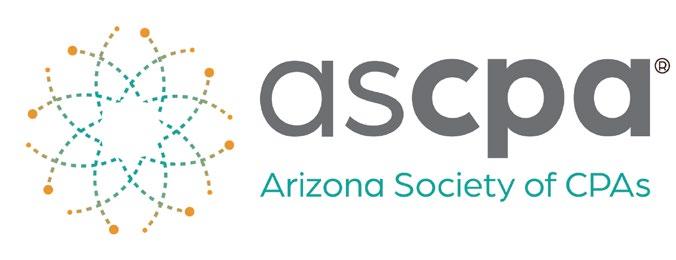
• The Arizona Unclaimed Property Guide explains what unclaimed property is, reporting requirements for holders of unclaimed property, how owners of unclaimed property can claim their property and audits.
